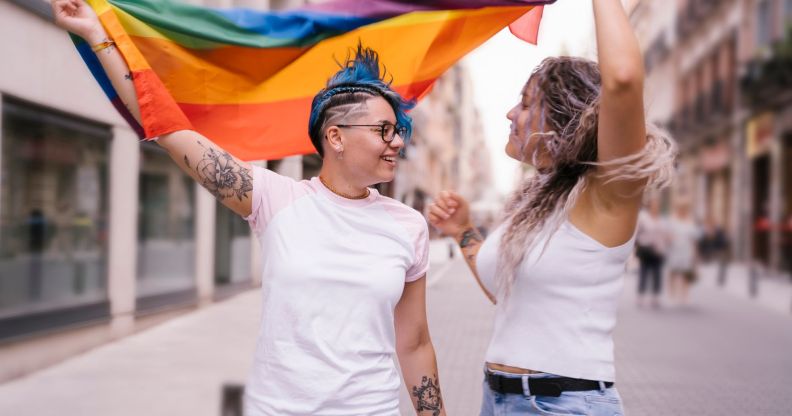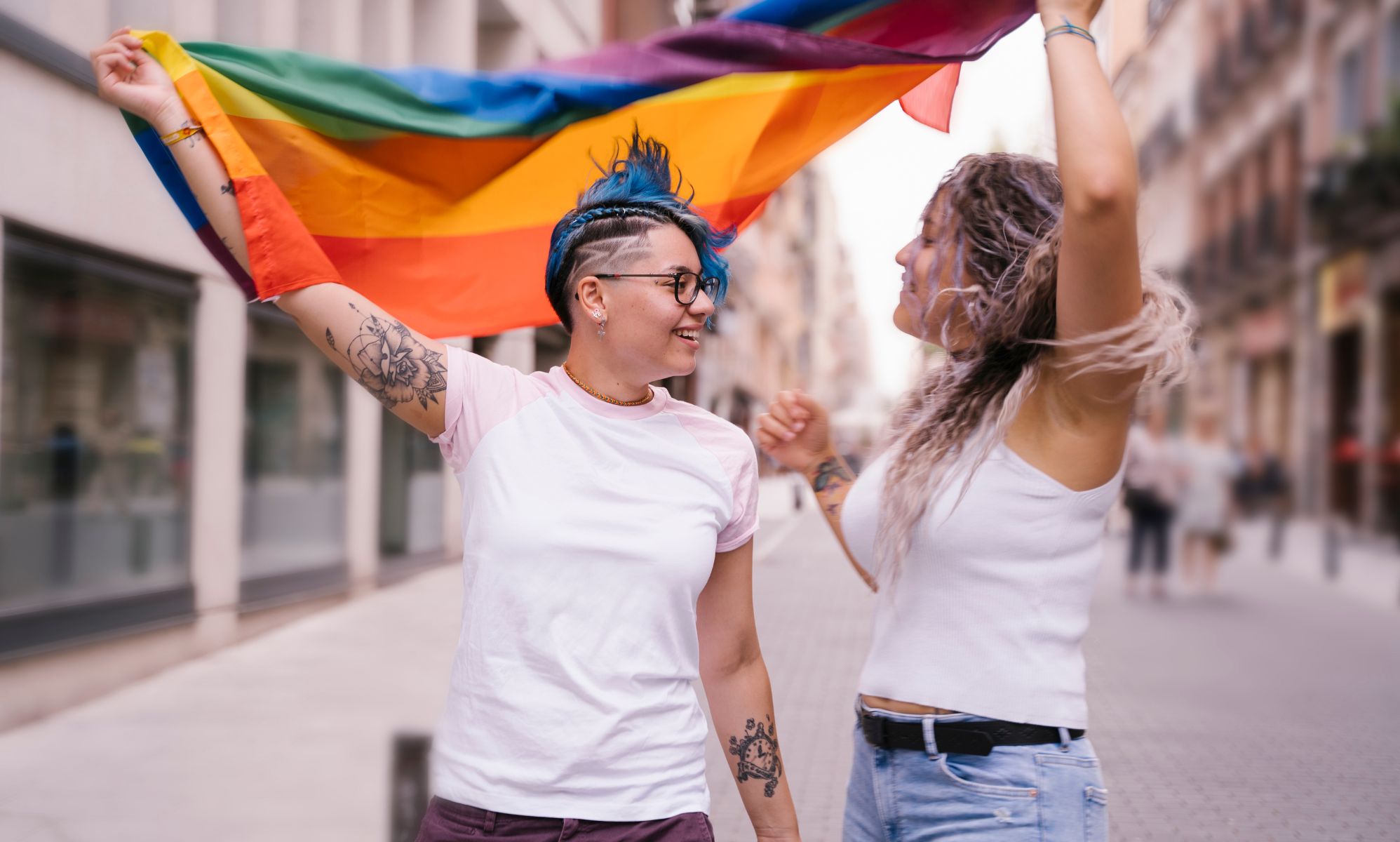
People can be both biromantic and bisexual at the same time. (Getty)
What does biromantic mean? Let’s find out together.
Firstly, it’s important to remember that sexuality is a spectrum. There are a number of different labels that people can use to describe themselves, if that’s what they want, but some don’t even know what fits them best.
For instance, these days it’s fairly common to hear the terms bisexual, pansexual, asexual, lesbian, gay, or queer, but terms like aromantic, allosexual, demiromantic, and gynosexual are less widely-used and can be confusing to those who aren’t aware of what they mean.
In particular, a term like biromantic can often become confused with being bisexual, even though they differ entirely.
The term biromantic is used to describe a person’s romantic desire – who they want to date, fall in love with, and even marry – whereas the term bisexual describes a person’s sexual attraction.
It might sound like those two things go hand-in-hand but they are not the same.
A person who identifies as biromantic can feel a romantic connection with people of the same gender as themselves or people of a different gender. It is about the emotional side of relationships rather than the sexual aspect.
Bisexual people, by contrast, feel sexual desire with people of the same gender or of a different gender.

Therefore, the term bisexual refers to a person’s sexuality while the term biromantic refers to a person’s romantic emotional connection.
They are two distinct identities, but feeling romantic desire doesn’t preclude you from feeling sexual desire – bisexual people can be biromantic, and vice versa.
A person who is both sexually attracted to and feels romantic connections to both genders would be both bisexual and biromantic. However, if they are only interested in sex with the opposite gender but capable of forming a romantic connection with both or more genders, they could identify as heterosexual and biromantic if they wish.
Many of the terms within the LGBTQ+ community overlap, and there are quite a lot of them – hence the plus symbol. Because human sexuality and identity is a spectrum, people can identify as one or two or several depending on how they feel.
Sexuality, gender, sexual desire, and romantic preferences aren’t black-and-white. The important thing is to be true to yourself and what you want.
How did this story make you feel?
Sending reaction…
Thanks for your feedback!
